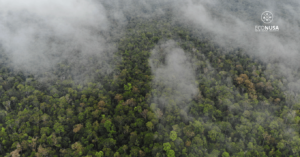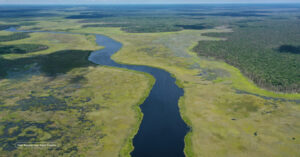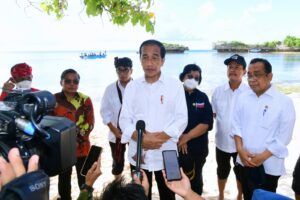
The wait ended, after waiting for two years, President Joko Widodo finally strengthened the promise to postpone a new permit (moratorium) on Palm Oil. Through Presidential Instruction No. 8/2018 concerning the Delay and Evaluation of Licensing and Increased Productivity of Palm Oil Plantations signed on September 19, 2018, the President ensured the moratorium is valid with legal certainty for the next 3 years.
Reported by Mongabay.com, this Instruction instructs work across Ministries. These include the Ministry of Environment and Forestry (LHK), the Ministry of Agriculture, the Ministry of Agriculture and Spatial Planning, the Ministry of Home Affairs, the Head of the Investment Coordinating Board and the Governors and Regents / Mayors.
For the Minister of LHK, the President through the Inpres instructed to postpone new licenses for oil palm plantations, both new applications, requests that have received approval in principle or applications submitted but have not yet completed the requirements. The Minister is also tasked with identifying and evaluating permits for oil palm plantations included in the forest area.
The Presidential Instruction also instructed the Minister of Agriculture to compile, verify data and map oil palm business permits as well as to register the oil palm business registration certificate.
For the Minister of ATR, the President ordered an evaluation of the usufructuary of oil palm plantations, including name and number, location, area, issuance date and designation.
While BKPM was ordered to postpone applications for new investment for oil palm plantations or plantation expansion from the release and swapping of forest areas.
The Minister of Home Affairs in the Inpres has the duty to provide guidance and supervision to the Governor and Regent.
A number of responses welcomed the issuance of the Inpres. The Indonesian Forum for the Environment (Walhi) reported by Kompas.id appreciates the Inpres, however, law enforcement must also be carried out in line with the enactment of the moratorium. Walhi also urged the openness of the process and information related to licensing by opening public active participation.
In line with Walhi, Executive Director of Sawit Watch Inda Fatinaware as reported by Kompas.id also appreciated the issuance of the presidential decree as part of the changes in governance of oil palm plantations. He hoped the Inpres would be synergistic with other policies. Implementation at the site level must also be carried out and monitored so that palm oil governance is better.
While from the business community, Chairperson of the Indonesian Palm Oil Association (Gapki) Joko Supriyono said Gapki had been involved in discussing the draft of the Inpres. “His enthusiasm is not only related to the moratorium, but how to evaluate existing licenses so that productivity is maintained,” he said.
The Presidential Instruction is expected to become a legal umbrella in overcoming overlapping licenses in forest areas. Joko assessed that efforts to increase productivity are still necessary because oil palm is a strategic commodity that contributes to exports and foreign exchange. “If (Inpres) only regulates the moratorium, we can lose the opportunity,” he added.
Previously, it was still vividly recalled two years ago how President Joko Widodo gave his promise to the moratorium to coincide with the Declaration of the National Movement to Save Plants and Wildlife in the framework of International Forest Day, on Karya Island. The Thousand Islands, Thursday (4/14/2016).
President Jokowi assessed that the existing oil palm land is sufficient and production capacity can be increased by maximizing the existing potential. “The existing land, as long as the seeds are correct, maybe production can be more than twice,” he said.
As reported by mediaindonesia.com, Jokowi suspected that the problem was caused by the rejuvenation of seeds that were late so that the current palm oil yields were considered not optimal. With the oil moratorium, he at that time hoped that there would be no land and forest allotment changes given again for oil palm concessions.
The oil moratorium follows the peatland moratorium policy which had previously been issued in the regulation to postpone the issuance of new permits on peatlands since May 13, 2015, as set out in Presidential Decree No. 8/2018 regarding Postponement of New Permits and Improving Governance of Primary Forests and Peatlands.







